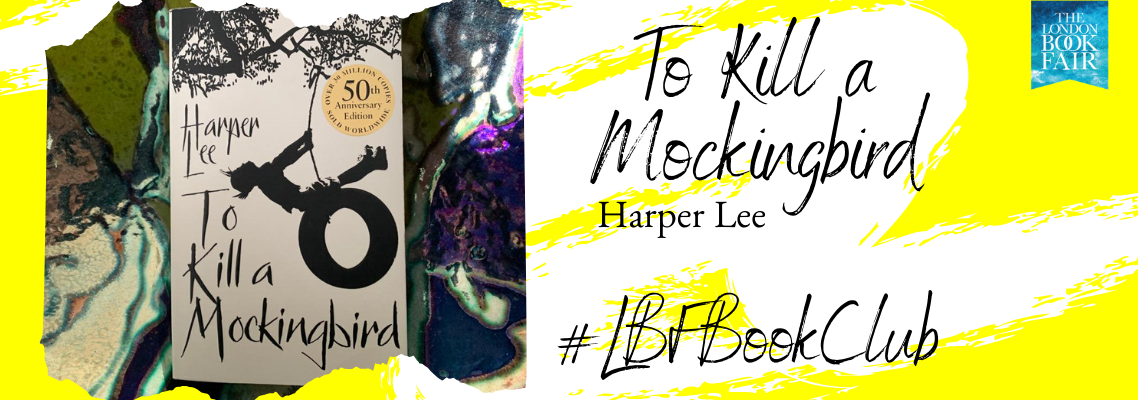Like many of you our LBF team is apart at the moment. Our book club is not only designed to bring us together through our shared love of books but also connect us with the greater online publishing community. We’ve now extended our book club timeline to every two weeks, which means we won’t be hosting our Q&A for this title until Friday 8th May, so stay tuned. To Kill a Mockingbird by Harper Lee was chosen by Jennie Marlow. Enjoy.
Review of Harper Lee’s To Kill a Mockingbird by Jennie Marlow
When I told people I was reading To Kill A Mockingbird for the first time I was met with shock and disbelief, it is, after all, such a deep-rooted classic. Published in 1960, the novel won a Pulitzer Prize in 1961. As I write I am conscious that as the book is so well entrenched in society there isn’t much more I could say that hasn’t already been said, so I’d like to start off by saying that this account is my own understanding and view of the book.
To Kill a Mockingbird is so ingrained in our public consciousness that as I started reading it I felt that I already knew the characters and the main events of the book. For those who haven’t yet read it, the novel is a treasure trove of poignant moments told from the perspective of Jean Louise Finch, or Scout, as she is nicknamed. The story is set during the Great Depression in the fictional town of Maycomb, Alabama. As we are led through the tale we also get to know her older brother Jeremy, or Jem, and her widowed father Atticus.
While the book begins by focusing on the allusive recluse Boo Radley, the focal point of the title is racism. We follow the children’s understanding, and later witnessing, of the court case of Tom Robinson, a black man who has been falsely accused of raping a white woman. To Kill a Mockingbird, through Scout, shines a childlike light on the social injustices prevalent all around her. The book also shows us how Scout’s community navigate the moral questions raised by racial injustice.
Atticus Finch is the book’s unconventional hero. He is the book’s role model due to his unwavering morality, even despite the horrors that befall on him and his children. For instance, he is steadfast to provide fair counsel to Tom; no matter what other local townspeople might think.
I loved this book. I loved how it was constructed, the writing, how the main characters were crafted with such nuances. For me, as I finished it, I found myself respecting it. While I admit, to truly understand this novel’s era you would have to read a multitude of other books, I felt that this one helped to further shape my understanding.
Witnessing children learn about social injustice and compassion for the first time was just amazing to read. What’s more, this novel had multiple threads sown into it. Namely, encouraging a generosity towards other people and key pull-out quotes perfectly capture this:
“Atticus, he was real nice.”
“Most people are, Scout, when you finally see them.”;
“You never really understand a person until you consider things from his point of view … Until you climb inside of his skin and walk around in it.”;
“I think there’s just one kind of folks. Folks.”
To Kill a Mockingbird is a moving tale that stirs up many discussions but it is also a book that absolutely should be read.

